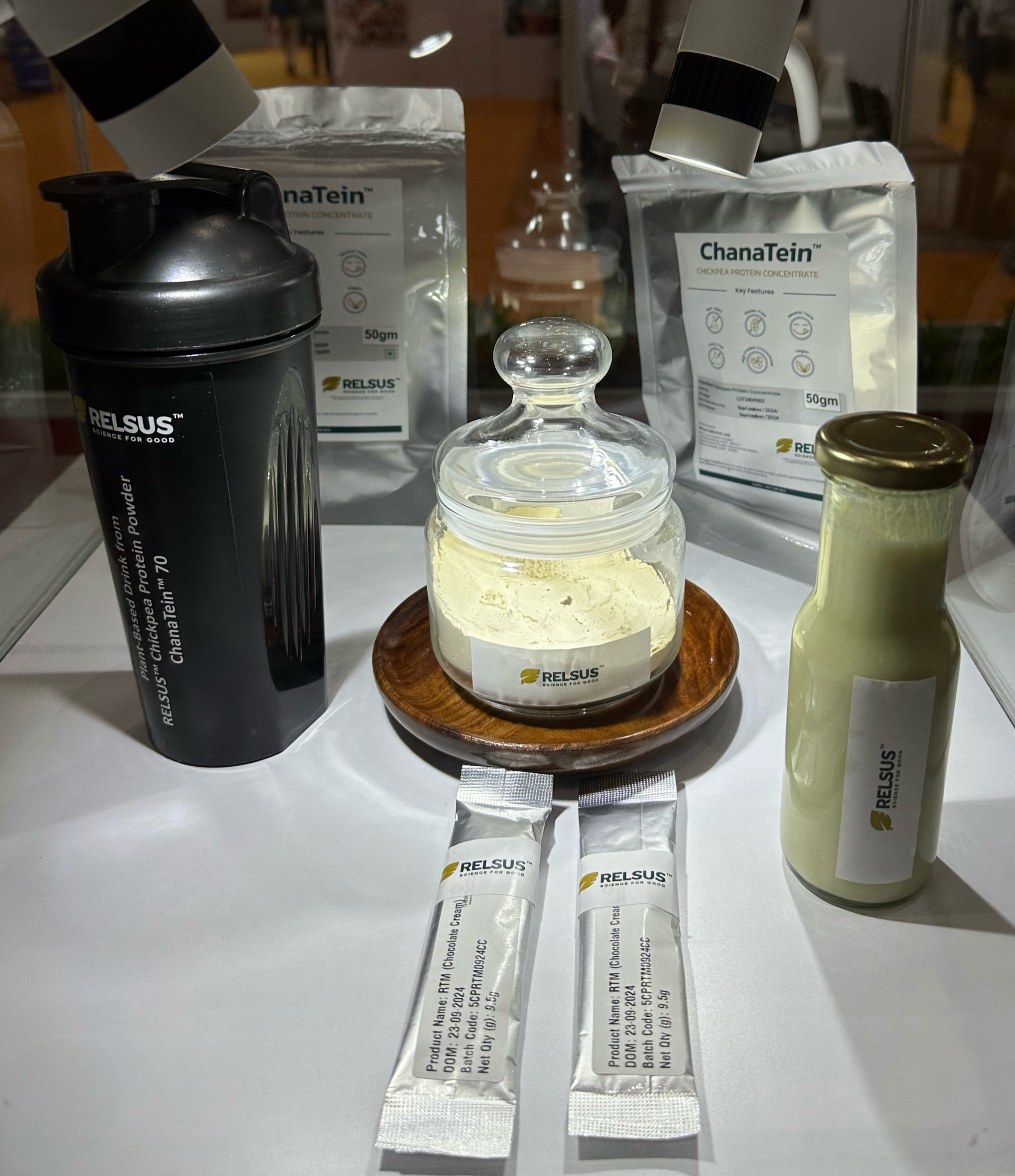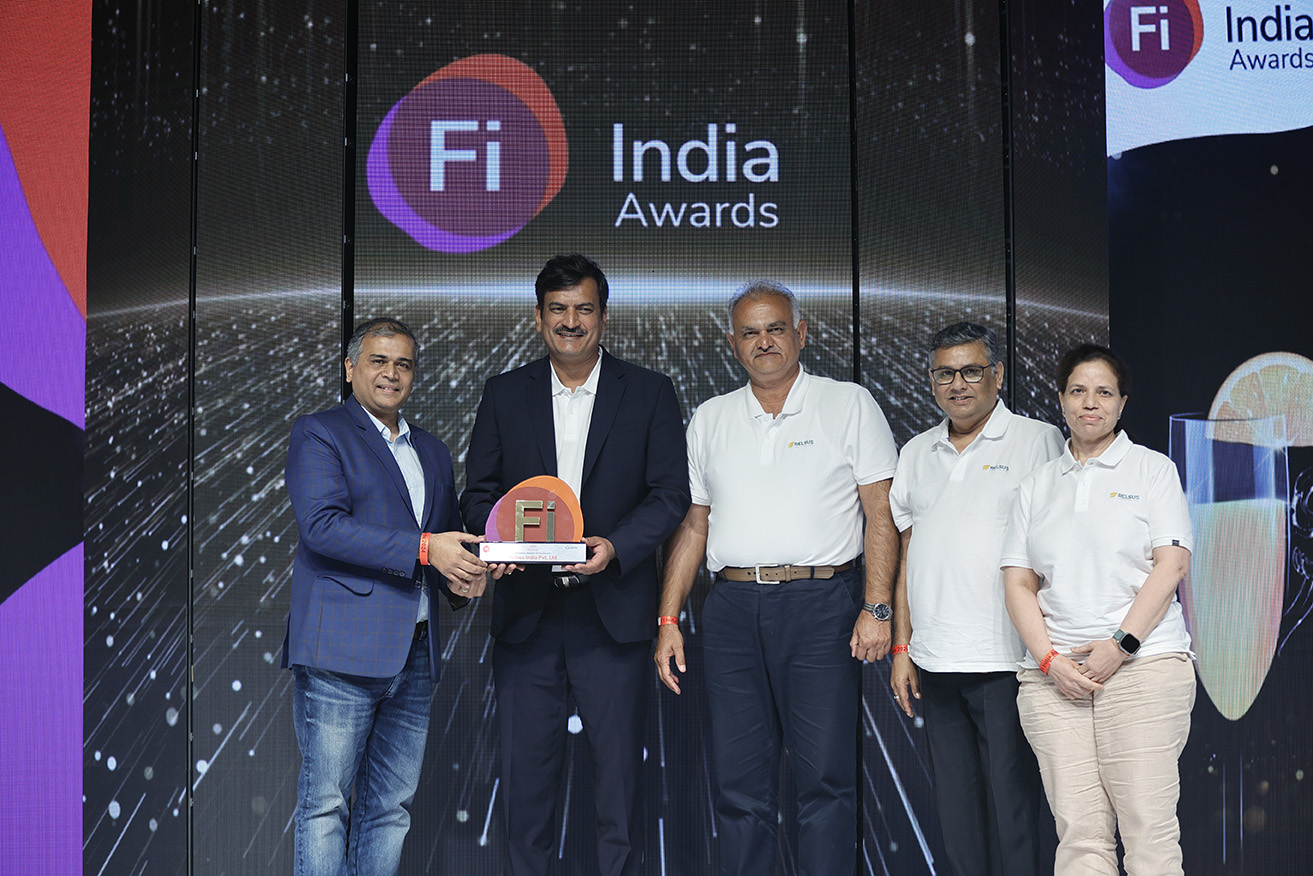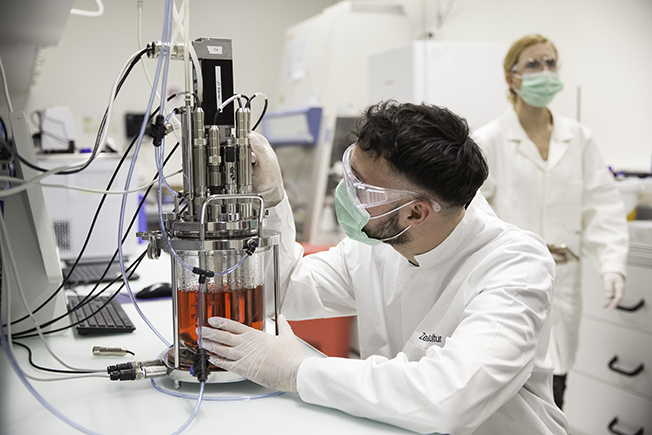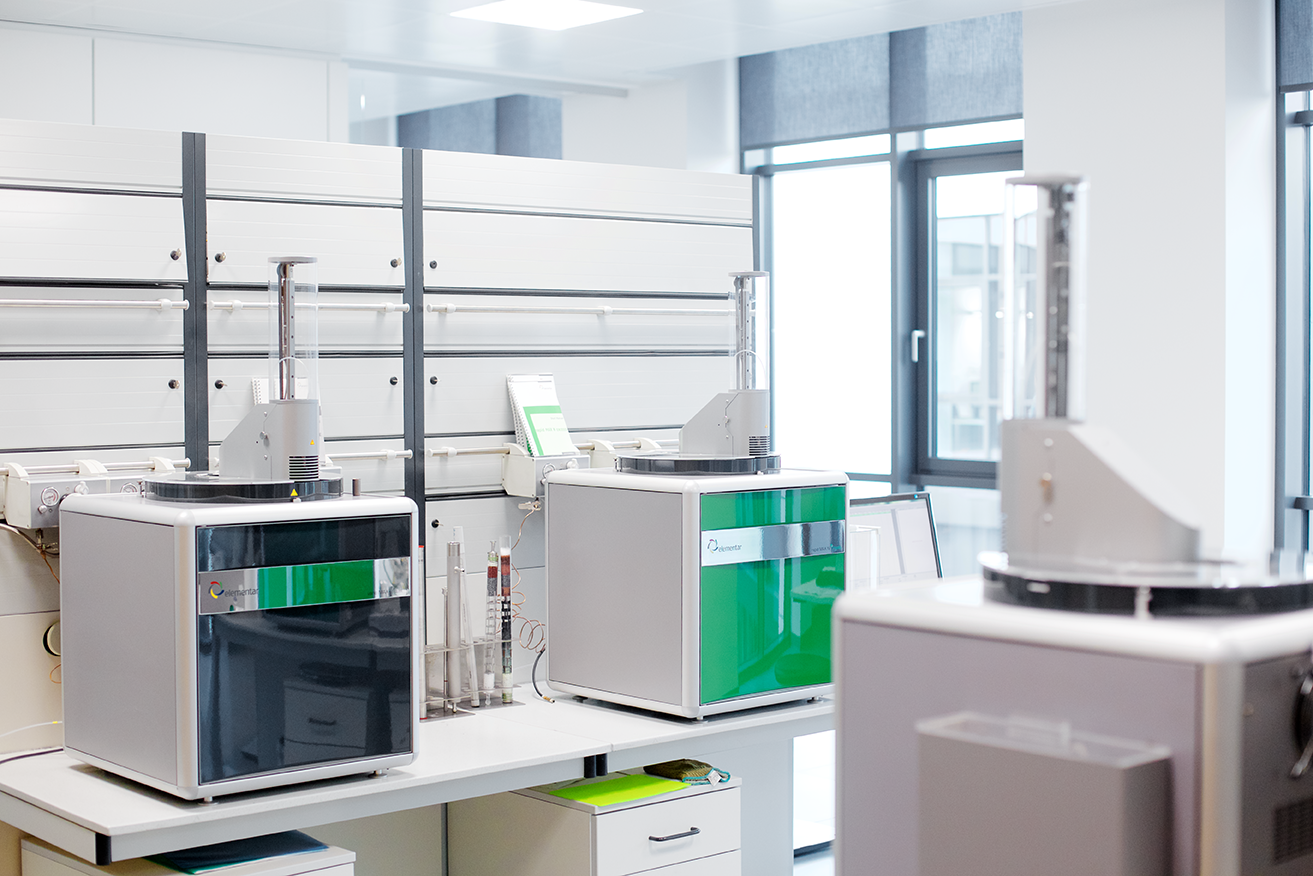

The RELSUS story: 125 years of expertise unite to combat climate change
RELSUS, led by CEO Vineet Singhal and a team of industry veterans, is adopting sustainable practices and smart technology to produce high-quality plant-based ingredients that address climate change
RELSUS – a combination of the words ‘Reliability’ and ‘Sustainability’ – may be new to the alternative proteins sector, but its founding team brings together a combined 125 years of experience from large multinational companies.
The founders – Vikas Mittal, Suman Sharma, Dr Neeraj Tewari, Rajveer Singh, and Vineet Singhal – all spent time in DSM’s active pharmaceutical ingredients business.

“With each of us having worked in our individual fields for 25 to 30 years, we feel it’s important to devote the remainder of our careers to combating climate change,” explains Vineet Singhal, CEO. “For us, it’s personal. We feel a collective responsibility, especially for our generation, to leave a better world for future generations.”
So, why food? Research indicates more than a third of GHGs originate from food systems, so Singhal views transitioning to sustainable proteins as critical for achieving climate targets. “Our mission is to drive innovation and large-scale production of premium, sustainably sourced plant-based food ingredients. That’s why we founded RELSUS.”
To achieve that, though, Singhal and his team identified two key areas that need to be addressed for the company to succeed. “First, we need to ensure the right quality of materials from both a sustainability and quality perspective,” he says. “Second, many new plant proteins do not yet meet customer expectations, particularly in terms of their sensory profiles.”

on display at Fi India (Innovation Category)
To overcome these challenges, RELSUS adopted a two-pronged approach. The first focused on the supply chain. “We established a backward integration model that involves creating our own or partnered farms and converting farmland to organic practices,” Singhal says. “We focus on raw materials that are inherently sustainable, including chickpeas, mung beans, peas, and canola. These thrive in dry seasons and require minimal water and resources. They also play a vital role in crop rotation by fixing nitrogen in the soil.”
Advanced technology
The second aspect involved the development of a proprietary technology platform called ‘Ultra-Precise Filtration Technology,’ which recently won the ‘Excellence in Research & Development’ award at Fi India 2024. “This multi-stage membrane technology effectively eliminates impurities and anti-nutritional compounds. It also removes off-flavors and beany tastes that were challenges in the early stages of product development. And it concentrates valuable micronutrients,” Singhal explains. “We use a water-based process that avoids harsh chemicals or solvents. As a result, the proteins we produce are not only high in protein but also rich in bioavailable micronutrients, making them particularly beneficial for health.”
Chickpea protein actually contains more than 70% protein purity and is rich in essential minerals such as iron, zinc, selenium, magnesium, manganese, calcium, and copper. “It also contains primarily polyunsaturated fats, which are healthy fats that contribute to its functionality and texture,” Singhal explains. “It’s versatile enough to serve as an alternative for creamers, milk, or other dairy products. In fact, we’ve developed specific applications for these uses. Mung bean protein, on the other hand, offers a minimum of 80% protein concentration, and it also provides similar micronutrient benefits to chickpeas. It contains minimal fat and carbohydrates, making it an excellent protein source. Mung bean protein also delivers a desirable mouthfeel and can be used as an egg replacement or in meat alternatives and various beverages.”

When it comes to customizing proteins for specific applications, Singhal explains that although there are inherent limitations based on the raw materials, there is still room for adaptation. “Recently, our R&D team completed a project focused on functional starches,” he reveals. “A customer wanted to replace modified starches with clean-label alternatives, and our team developed a solution using chickpea starches. These offered functional properties that were even superior to chemically modified starches. In the protein segment, our chickpea proteins are particularly effective in beverages due to their high solubility, which exceeds that of conventional plant proteins.”
For us, it’s personal. We feel a collective responsibility, especially for our generation, to leave a better world for future generations
Discussing solubility, Singhal is cautious about providing exact figures because industry testing methods can vary. “However, in our initial and second waves of technological development, solubility was around 1.2 to 1.5 times higher than the industry benchmark,” he says. “With our third wave, we’ve achieved a solubility index of about 1.8 to 2 times that of proteins produced using conventional methods. The reason behind this increased solubility is our ability to concentrate albumins alongside globulins, which enhances both solubility and foaming properties. Our proteins also demonstrate excellent water-holding capacity, emulsification, and gelation properties, which are on par with traditionally produced proteins. For instance, in high-foaming applications such as baking, mung bean protein can produce results similar to eggs. And in dairy, chickpea protein can match or even surpass the functional and nutritional properties of dairy proteins.”
Sensory challenges
Beyond functionality, another well-known challenge for plant proteins is their sensory profile, as Singhal notes from his discussions with customers and industry players. “Although plant proteins are seeing rapid growth, they should be expanding even faster, especially considering the urgency of climate action,” he says. “One of the key barriers has been the sensory profile. When we launched our initial products during the first and second waves of development, we encountered issues with beany and off-flavors. But I’m proud to say that with our third wave of technology advancements – specifically our Ultra-Precise Filtration Technology – we’ve been able to effectively remove these undesirable flavors.”
Supply won’t be an issue either. RELSUS’s production takes place in India, which accounts for more than two-thirds of global chickpea production and is also a significant producer of mung beans. “By setting up our facility in this region, we benefit from proximity to high-quality raw materials, which reduces the need for imports and minimizes our carbon footprint,” Singhal adds. “We’ve converted our model farms to organic practices over the past four years, and we are in the process of obtaining organic certification.”

in the category of Research & Development
And through partnerships with local farmers and Farmer Producer Organizations (FPOs), RELSUS has been able to positively impact farmers’ incomes by providing access to high-quality seeds. This initiative is part of a collaboration with the Indian Institute of Pulse Research (IIPR), a leading institution in pulse research. “These seeds are sustainable and don’t require pesticides or fertilizers, aligning with our commitment to high-quality raw materials,” reveals Singhal. “This proximity also enhances traceability, so we know where our raw materials come from. Not only that, as our filtration technology removes impurities, including pesticide residues, it’s a three-tiered protection system for high-quality, sustainable products.”
As RELSUS looks to the future, it plans to continue prioritizing R&D, which is at the core of its operations. “Aside from our production staff, our R&D team is the largest, and we are continually strengthening our efforts in this area,” Singhal says. “We are focused on enhancing our processing capabilities and adding more proteins to our portfolio, including exploring oilseeds beyond canola, legumes, and other sustainable plant sources.”
In addition to proteins, RELSUS has made big progress with functional starches. “We’re not just creating by-products; we’re turning them into valuable solutions,” says Singhal. “For example, chickpea, mung bean, and pea starches can effectively replace chemically modified starches, offering similar or even superior functionality. We’re also exploring ways to expand our portfolio to include dietary fibers derived from our supply chain. This will be a key focus moving forward.”
In a later phase, RELSUS may even explore low-calorie sweeteners derived from natural sources such as fruit or stevia, although Singhal says that’s not an immediate priority. “This is something we plan to investigate in the third phase of our development,” he concludes.
For more information visit www.relsus.com
If you have any questions or would like to get in touch with us, please email info@futureofproteinproduction.com


%20ILVO%202.jpg)

.png)

